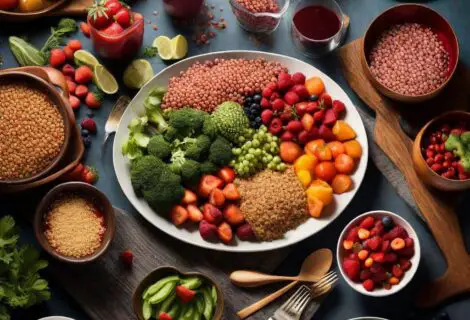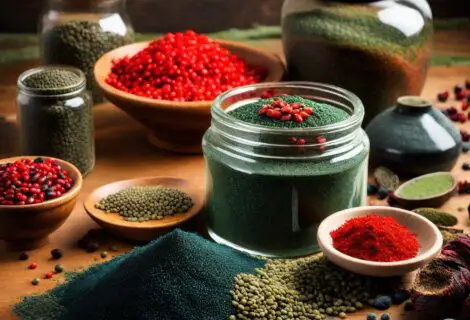Ultra-Processed Food Addiction
Introduction
Ultra-processed food (UPF) addiction represents a subtle manipulation of our senses by virtue of its extensively processed nature and the inclusion of unconventional additives, rarely encountered in domestic kitchens. These additives, meticulously incorporated, beguile our taste buds, coaxing us into consuming larger quantities of UPF, even in the absence of genuine hunger.
An Elucidation of UPF
UPF receives an explicit definition from the United Nations (UN): “Food subject to a gamut of industrial procedures, markedly distinct from traditional culinary practices. These procedures encompass the infusion of sugar, fat, salt, and sundry additives aimed at augmenting palatability and extending shelf life.”
UPF often undergoes multiple processing stages involving high temperatures, chemical reactions, and mechanical manipulations. This results in significant alterations to the food’s original composition and structure. Substances like artificial flavors, colors, preservatives, and texturizers are added to enhance the taste, appearance, and shelf stability of UPF.
Why Quick Fix Diets Fail: The Truth about Healthy Weight Loss
Illustrative Instances of UPF
Illustrative Instances of UPF comprise a wide range of commonly consumed products:
-
Carbonated beverages
These include sugary sodas, energy drinks, and artificially flavored sparkling water. They are often loaded with high fructose corn syrup, artificial sweeteners, and chemical additives.
-
Pre-packaged savory treats
This category encompasses chips, crackers, and other salty snacks that are typically made with refined grains, hydrogenated oils, and a myriad of flavoring agents to create addictive taste profiles.
-
Breakfast cereals
Many popular breakfast cereals fall into the UPF category. They are often processed, fortified with synthetic vitamins and minerals, and loaded with added sugars, making them highly palatable but lacking in nutritional value.
-
Cryogenically preserved repasts
Frozen meals, such as ready-to-eat dinners, frozen pizzas, and microwavable entrees, are prime examples of UPF. These meals undergo extensive processing, including cooking, freezing, and packaging with added preservatives and flavor enhancers.
-
Pre-prepared confections
Pre-made desserts like cakes, cookies, and pastries often contain an array of artificial ingredients, trans fats, and high levels of refined sugars. These indulgences are designed to be irresistibly sweet and addictive.
Navigating Your Diet with Ozempic: Foods to Be Mindful Of
The Cunning Ploys of UPF to Induce Overindulgence
UPF executes an array of stratagems to ensnare us in the snares of overconsumption, which encompass:
-
Caloric Density
UPF frequently exhibits an exorbitant caloric content, abounding in fat and sugar, imparting a fleeting sense of satiety. However, this fleeting satisfaction swiftly dissipates, beckoning us to seek further sustenance. The combination of high-calorie density and lack of satiety can lead to excessive calorie intake and weight gain.
-
Supple Texture
The supple texture characteristic of UPF poses a predicament in regulating portion sizes. Easier mastication and subsequent deglutition render us predisposed to exceeding reasonable limits. The effortless consumption of soft and smooth UPF items can bypass our natural satiety cues, making it harder to control our intake.
-
Flavor Alchemists
UPF surreptitiously integrates flavor enhancers, exemplified by MSG (monosodium glutamate), which metamorphose the gustatory experience into an ambrosial indulgence. These additives stimulate our taste receptors, intensifying the flavors and making the food taste more appealing. Consequently, we find ourselves enticed to engage in voracious consumption, irrespective of our actual appetite.
-
Insidious Addiction
Certain experts postulate that UPF harbors addictive properties akin to narcotics or alcohol. This is due to the potential of UPF to activate the reward pathways within the brain, akin to the effect of these substances. The combination of highly palatable flavors, artificial additives, and the impact on brain chemistry can lead to a psychological dependence on UPF, making it challenging to break free from its allure.
The Power of Whole Foods Plant-Based Eating: A Lifestyle Choice
The Perils Inherent in UPF Consumption
The repercussions of excessive UPF consumption reverberate ominously, precipitating various deleterious health outcomes, including:
-
Proliferation of Pounds
The caloric excess ingrained within UPF predisposes individuals to weight gain, exacerbating concerns pertaining to obesity. The consumption of UPF, often high in refined carbohydrates, unhealthy fats, and added sugars, contributes to the energy imbalance that leads to weight gain over time.
-
Escalated Risk of Chronic Ailments
Empirical evidence supports a correlation between UPF consumption and heightened susceptibility to chronic afflictions such as cardiovascular disease, stroke, type 2 diabetes, and certain malignancies. The nutrient-poor nature of UPF, coupled with its high content of unhealthy ingredients, contributes to the development of these health conditions.
-
Impairment of the Microbiome
The delicate balance of the gut microbiome, an assemblage of symbiotic bacteria, falls prey to the detrimental effects of UPF ingestion, culminating in an array of health complications. UPF, with its lack of fiber and abundance of artificial additives, disrupts the diversity and composition of the gut microbiota. This imbalance can lead to digestive issues, compromised immune function, and increased susceptibility to various diseases.
Mitigating UPF Consumption: The Path to Optimal Well-being
Several measures can be undertaken to curtail the intake of UPF, thereby fostering a state of improved vitality:
-
Scrutinize Food Labels
Diligently peruse the ingredient listings on food labels. An overabundance of additives serves as a telltale sign of UPF. Familiarize yourself with the names of common additives and prioritize whole foods with minimal processing.
-
Embrace Home Cooking
Embracing the culinary arts within the confines of our homes empowers us with greater dominion over the ingredients that permeate our meals. By preparing meals from scratch using fresh, whole ingredients, we can avoid the hidden additives and excessive processing associated with UPF.
-
Champion Whole Foods
Opt for unprocessed or minimally processed whole foods, as they confer health benefits and are conducive to holistic well-being. Whole grains, fruits, vegetables, lean proteins, and healthy fats should form the foundation of our dietary choices, providing essential nutrients and minimizing the reliance on UPF.
-
Cultivate Wholesome Snacking Habits
Nourishing alternatives such as fresh fruits, vegetables, and nuts should be readily accessible, curbing the temptation to succumb to unhealthy snack choices. Keep a stock of these nutritious options on hand, both at home and in your workplace, to support healthier snacking habits.
Conclusion
UPF emerges as a gastronomic entity that demands circumspection in light of its adverse impact on our well-being. By assiduously adopting the aforementioned strategies, we can meaningfully reduce our reliance on UPF, thereby steering ourselves toward the path of enhanced holistic health. The journey
We invite readers to actively engage in the discussion on ultra-processed foods (UPF). Share your thoughts, suggestions, and personal experiences in the comments section below. Let’s learn from one another and spread awareness by sharing this article with others who might benefit from it.
The Top 7 Benefits of Apple Cider Vinegar
FAQ
-
What are the examples of ultra-processed foods?
- Carbonated beverages, pre-packaged savory treats, breakfast cereals, frozen meals, and pre-prepared confections are common examples of ultra-processed foods.
-
Why does ultra-processed food make us eat more?
- Ultra-processed foods often have high calorie density, soft texture, flavor enhancers, and potential addictive properties, which can lead to overconsumption and disregulation of appetite.
-
What are the health risks associated with consuming ultra-processed food?
- Health risks linked to excessive consumption of ultra-processed food include weight gain, increased risk of chronic diseases like heart disease and type 2 diabetes, and damage to the gut microbiome.
-
How can I reduce my intake of ultra-processed food?
- You can reduce your intake of ultra-processed food by reading food labels, cooking more meals at home, opting for whole foods, and keeping healthy snacks readily available.
-
Is all processed food bad for health?
- Not all processed food is bad for health. There are varying degrees of processing, and it’s important to distinguish between minimally processed and ultra-processed foods. Whole foods that undergo minimal processing can still be nutritious.
-
Can I break free from the addiction to ultra-processed food?
- While breaking free from the allure of ultra-processed food can be challenging, it is possible. Adopting a gradual approach, educating yourself about nutrition, and seeking support from professionals or support groups can help in overcoming addiction.








